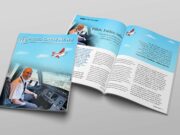
These are turbulent times, for everyone, worldwide. Anxiety, stress, loss and grief are recurring themes. We know that times are changing and new routes are planned – hope is on the horizon. However, an overall feeling of ambiguity and uncertainty still remains. These five strategies will help you cultivate more resilience.
1. Mental Wellness
First of all, take good care of yourself, your decisions, and your mental health. Do things that help you relax and make you feel more at ease. Practicing mindfulness cultivates positive mental health. By regularly shifting your attention to the present, you can help yourself to experience less stress and learn to better deal with uncomfortable feelings. Feeling lonely or anxious? Bring your attention to this feeling and observe what it does within your body. This helps you accept and understand uncomfortable feelings better. Continuously ask the following questions:
- What am I feeling and why?
- How do I feel about what is happening?
- What am I doing to take care of myself?
- What could I do to make myself feel better right now?
2. Problem Solve
Try to approach the challenge analytically, creatively, and practically. The analytical approach means asking questions such as: What are the facts? Am I the one who has to solve it? This also means limiting the checking of news sources. At the beginning of the Covid-19 crisis, the situation seemed to change hourly. Now that the measures have been put in place, most of us no longer need to keep checking the news. Choose to check the current situation once or twice a day. For example, keep up via a news site, the news, or a talk show. This way you stay informed but you give your brain a little rest.
The creative approach includes questions such as: What would happen if I did the opposite of what I’m doing now? What would be a ridiculous solution? What is a positive perspective on the situation? The practical approach is to recognize and set aside personal emotions and accept reality in the best way possible. The practice of mindfulness exercises will help you achieve this goal.
3. Build Confidence
Resilient people know how to rely on themselves in more difficult times. Developing more self-confidence and a positive self-image can help you support yourself. Options for strengthening self-image are listing personal qualities, complimenting yourself, or asking others about your personal strengths. Increasing your self-confidence can be accomplished through setting challenging goals for yourself in various areas. Learning, exercising, hobbies – the variations are endless. One opportunity to build your confidence is to help people who are in the same situation. There are endless initiatives available to help others from your area in this time of Covid-19. Do not put the bar too low or too high!
4. Optimism = winning
Trying to stay optimistic and curious helps to adapt to changes. Ask questions, enjoy the process of learning, and try to come up with creative solutions that are both helpful for yourself and others.
Oftentimes, after a difficult or unpleasant time, people experience a feeling of strength, great self-esteem, a spiritual feeling, or a greater appreciation for the small things in life. Ask yourself the following questions: What have I learned? How can I be thankful for what happened? What new strength have I developed as a result? How have I developed my self-confidence? Have I become more empathetic?
5. Stay healthy
Taking good care of yourself and your body helps reduce depression and mental stress. Keep exercising – even if you stay inside. YouTube has many useful videos. Track your progress with your phone or smartwatch and get motivated to achieve a minimum goal every day.
For many people, sitting at home leads to unhealthy eating behavior. Even though it may be difficult to keep a varied diet, keep eating fruits and vegetables, whole grains, and nuts to stay physically healthy on the inside and outside.
For a healthy lifestyle, sufficient sleep is essential. Get enough sleep and work to improve the quality of your sleep. Good sleeping habits and hygiene are important. Do not stay in bed for too long and set your alarm at regular times.
You’ve got this!
An active attitude often works best when dealing with challenges. Instead of hiding and hoping that everything will blow over, try to influence what you can as much as possible and solve your problems. At the same time, learning to recognize and accept things that cannot be changed is important. This is the mindful attitude to life: Change what you can control, and try to let go of the rest.





















































